

Organisé par le
CNRC-Institut canadien de l'information scientifique et technique
|
|
Résumés et biographies
(disponibles en anglais seulement)
- Lee Dirks – Microsoft Corporation, WA
- Paul Uhlir – National Research Council, Washington, DC
- Francine Berman – San Diego Supercomputer Center, California
- Pam Bjornson – Conference Chair
- Katy Börner – Indiana University, Indiana
- Richard Boulderstone – British Library, UK
- Jan Brase – German National Library of Science and Technology, EU
- Peter Fox – Rensselaer Polytechnic University, State of New York
- Herbert Gruttemeier – President, ICSTI
- Chris Greer – Federal Networking and Information Technology Research and Development Program, Arlington, Virginia
- Paula Hurtubise – Carleton University, Ottawa
- Ellsworth LeDrew – University of Waterloo, Waterloo, Ontario
- Liz Lyon – University of Bath, UK
- James L. (Jim) Mullins – Purdue University, Indiana
- Tim Smith – CERN, Switzerland
- Jan Velterop – Concept Web Alliance, U.K
Conférencier supplémentaire :
eResearch, Semantic Computing & the Cloud
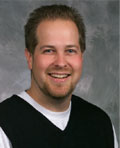 |
Keynote Speaker
Lee Dirks
Microsoft Corporation, WA
|
In the future, frontier research in many fields will increasingly require the collaboration of globally distributed groups of researchers needing access to distributed computing, data resources and support for remote access to expensive, multi-national specialized facilities such as telescopes and accelerators or specialist data archives. There is also a general belief that an important road to innovation will be provided by multi-disciplinary and collaborative research – from bio-informatics and earth systems science to social science and archaeology. There will also be an explosion in the amount of research data collected in the next decade – petabytes will be common in many fields. These future research requirements constitute the 'eResearch' agenda.
Powerful software services will be widely deployed on top of the academic research networks to form the necessary 'cyberinfrastructure' to provide a collaborative research environment for the global academic community. The difficulties in combining data and information from distributed sources, the multi-disciplinary nature of research and collaboration, and the need to move to present researchers with tooling that enable them to express what they want to do rather than how to do it highlight the need for an ecosystem of Semantic Computing technologies. Such technologies will further facilitate information sharing and discovery, will enable reasoning over information, and will allow us to start thinking about knowledge and how it can be handled by computers.
This talk will review the elements of this vision and explain the need for semantic-oriented computing by exploring eResearch projects that have successfully applied relevant technologies, and the anticipated impact on scholarly communication as we know it today. It will also suggest that a software + service model with scientific services delivered from the cloud will become an increasingly accepted model for research.
Biography
Lee Dirks, MLIS, is the Director of Scholarly Communications for Microsoft's Technical Computing Initiative, where he manages research programs related to open access to research data, interoperability of archives and repositories and the preservation of digital information. In addition to positions at Columbia University where he received a post-masters degree in Preservation Administration, Mr. Dirks has held a variety of roles at Microsoft since joining the organization in 1996.
[Haut de la page]
Revolution and Evolution in Scientific Communication: Moving from Restricted Dissemination of Publicly-Funded Knowledge to Open Knowledge Environments¹
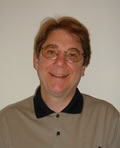 |
Keynote Speaker
Paul Uhlir
National Research Council, Washington, DC
|
It is axiomatic that the rate of change in technological systems initially outpaces human capacity to adapt to the technological advances. This is particularly true for transformational technologies that displace their antecedents, including the associated organizational paradigms. Such a transformation is currently taking place as a result of the technological revolution brought about by the combination of digital information technologies and global communication networks. The pre-internet legacy business model for research journals that restricts access to and use of publicly funded scientific information, however, is not taking advantage of the potential benefits of national and global open availability online. Such a business model consequently is slowing the progress of science and socio-economic development. The question, therefore, is not whether open availability to publicly-funded research information is better than access provided on terms that are economically, legally, and technologically restricted, but how open availability and re-use can be most effectively institutionalized and how quickly.
There already are multiple paths that are being taken to make this transition from restricted to open dissemination and use. The evolutionary human systems are thus beginning to respond to the opportunities made possible by the revolutionary technologies embodied in global digital networks. A gradual, but highly significant and far-reaching restructuring of scientific communication in public research is taking place.
This presentation will describe the author's vision of open knowledge environments (OKEs) for digitally networked scientific communication. OKEs would bring the scholarly communication function back into the universities, much like law journals are published in the United States today. But the OKEs would go beyond the law journal model, integrating the disparate institutional open access developments in a holistic, thematic hub of interactive education and research. The production, dissemination, and use of public knowledge thus would be managed directly by the universities themselves, eliminating the artificial market created by the legacy intermediaries for these public goods and supporting the universities' mission
¹ This presentation is based in part on: Paul F. Uhlir (2006). "The emerging role of open repositories for scientific literature as a fundamental component of the public research infrastructure." In Open Access: Open Problems. G. Sica (ed.). Polimetrica. Torino, Italy. The views expressed here are those of the author and not necessarily those of the U.S. National Research Council.
Biography
Paul Uhlir is Director of the Board on Research Data and Information at the U.S. National Research Council, Washington, and Director of the InterAcademy Panel on International Issues' Program on Digital Knowlege Resources and Infrastrucure in Developing Countries. His current area of emphasis is on S&T data management and policy, and on the relationship of intellectual property law in digital data and information to R&D policy. Mr. Uhlir has been employed at The National Academies since 1985, most recently as Director of the Office of International Scientific and Technical Information Programs.
[Haut de la page]
Mobilizing the Deluge of Data
 |
Francine Berman
San Diego Supercomputer Center, California
|
The Information Age has brought with it a deluge of digital data. Current estimates are that, in 2006, 161 exabytes (10^18 bytes) of digital data were created from cell phones, computers, iPods, DVDs, sensors, satellites, scientific instruments, and other sources. This digital information drives virtually every area of research, education, commerce, entertainment, and is the source of forward progress and innovation in every country across the globe. While today's digital data has the potential to transform our work and life, the challenges of managing it, retaining it, accessing it over the long term, using it, and sustaining it constitute some of the most difficult problems of our time. Solving these problems requires strategies that make sense from a technical, policy, regulatory, economic, security, and community perspective. In this talk, we focus on the opportunities presented by today's and tomorrow's deluge of data along with the challenges of creating useful information from this data accessible for the foreseeable future.
Biography
Dr. Francine Berman is the Director of the San Diego Supercomputer Center (SDSC), an ACM Fellow, professor and first holder of the High Performance Computing Endowed Chair at UC San Diego, and Co-Chair of the international Blue Ribbon Task Force on Sustainable Digital Preservation and Access. This international leader in cyberinfrastructure and advocate for sustainable data preservation leads a staff of over 300 interdisciplinary scientists, engineers, and technologists in the innovation, development, and provision of computational and information infrastructure.
[Haut de la page]
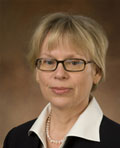 |
Pam Bjornson, Conference Chair
|
Biography
Ms. Bjornson is Director-General of NRC Canada Institute for Scientific and Technical Information (NRC-CISTI). She is a member the ICSTI Executive Board, holding the position of Treasurer.
Ms. Bjornson has a Masters of Business Administration from the University of Ottawa, and has over 25 years of management experience, including nine years as Executive Director of Canadiana.org, a not-for-profit organization established by the major Canadian university libraries and the National Library of Canada to preserve Canada's printed heritage and make the resulting collection accessible to research libraries in Canada and around the world.
She has built strategic partnerships and collaborations with private sector organizations, academia, and government departments and agencies. Ms. Bjornson has held board and committee roles with other national library-related organizations. She is founding Chair of the Research Data Strategy Working Group, a national multi-disciplinary collaborative initiative to work on data management issues.
[Haut de la page]
Computational Scientometrics to Inform Science Policy
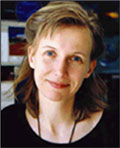 |
Katy Börner
Indiana University, Indiana
|
Through its "Cyberinfrastructure for Network Science" center (http://cns.slis.indiana.edu/), the School of Library and Information Science at the Indiana University is providing computational resources for scientists and policy-makers who seek to understand the flow of knowledge. By providing unified access to data sets of scientific publications, the center acts as a hub for scientometrics. The group is also conducting a needs analysis of sciencepolicy-makers in academia and government to define what 'science of science' tools they require. The resulting recommendations for macroscope of science will be presented. Dr. Börner will introduce this suite of cyberinfrastructure applications and discuss how the sharing, analysis and visualization of published knowledge can inform science policy.
Biography
Dr. Katy Börner is the Victor H. Yngve Associate Professor of Information Science in the School of Library and Information Science, Indiana University. Dr. Börner is the recipient of many fellowships and awards, including Outstanding Junior Faculty Award, Pervasive Technology Laboratories Fellowship, SBC Fellow, and an NSF CAREER Award. Her research focuses on the development of data analysis and visualization techniques that improve information access, understanding and management. She is particularly interested in the study of the structure and evolution of scientific disciplines; the analysis and visualization of online activity; and the development of cyberinfrastructures for scientific collaboration and computation.
[Haut de la page]
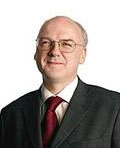 |
Richard Boulderstone
British Library, UK
|
Biography
Richard Boulderstone is the Director of e-Strategy and Information Systems at The British Library. Mr. Boulderstone is a former CTO and Product Development Director at a number of international information providers, and has led the creation of many information based products both in the USA and UK. Mr. Boulderstone is currently leading The British Library's efforts to create a large-scale digital object management system that will become the primary repository for the Library's, and hence the UK's, legal deposit collection of electronic resources.
[Haut de la page]
Access to Research Data - What can Libraries do to Help?
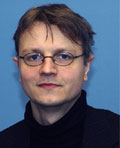 |
Jan Brase
German National Library of Science and Technology, EU
|
Knowledge, as published through scientific literature, is the last step in a process originating from primary scientific data. These data are analyzed, synthesized, interpreted, and the outcome of this process is published as a scientific article. Access to the original data as the foundation of knowledge has become an important issue throughout the world and different projects have started to find solutions. In this talk we will discuss the role that libraries can play in this new era of eScience.
The German National Library of Science and Technology (TIB) has acted as a DOI Registration agency for research data since 2005. Over 600,000 data sets have been registered through TIB and are therefore citable and persistently accessible. Over 1,000 datasets are furthermore available directly through TIB's library catalogue. At present TIB is widening its data registration system to include information institutions and libraries worldwide.
Biography
Dr. Jan Brase is with the German National Library of Science and Technology (TIB), and is coordinator for the DOI Registration Agency for research data sets - over 600 registered since 2005. His research background is in metadata, ontologies and digitial libraries.
[Haut de la page]
Xinformatics, Data Science and the Full Life Cycle of Data Information and Knowledge in Earth and Space Sciences
 |
Peter Fox
Rensselaer Polytechnic University, State of New York
|
In the past decade, the emergence of high volume, heterogeneous data sources arising as a result of new observational methods, detectors, and computer technology has led to the adoption of both new paradigms and technical approaches in acquiring, managing and distributing data and information products to diverse audiences. In earth and space sciences, 'system-level' science is now becoming accepted as a viable and necessary paradigm. Increasingly, researchers across these fields are being challenged to advance scientific understanding using either complex disciplinary or interdisciplinary data holdings and, more and more often, data from both observations and models that they may not have generated. Terms such as virtual, integrated, distributed, interdisciplinary, non-specialist and multi-stakeholder present a panoply of both technical and non-technical challenges. Across many disciplines, it is clear that this new data science is one of the ways science will be done in the future.
In current implementations, what has emerged is a natural layering of modern cyberinfrastructure built on now (almost) commodity information technology. However, the translation of science needs and functionality of what are commonly called 'data systems', have had variable success in sustainably utilizing the still evolving cyberinfrastructure.
This talk will present context, introduce and define concepts, and highlight the growing awareness that a new generation of informatics built on rich semantics, computer science methods and web technologies is a key linking element between both non-science and science, and cyberinfrastructure. A few examples will indicate some details of implemented solutions that are starting to take data intensive science into a new realm of realizability and, potentially, sustainability.
Biography
Peter Fox is a Professor and Tetherless World Research Constellation Chair, Climate Variability and Solar-Terrestrial Physics at Rensselaer Polytechnic Institute. He was the Chief Computational Scientist at the High Altitude Observatory (HAO) of the National Centre for Atmospheric Ressearch (NCAR) and is currently PI for the Virtual Solar-Terrestrial Observatory (VSTO), the Semantically-Enabled Scientific Data Integration, and Semantic Provenance Capture in Data Ingest Systems projects. Fox's research specializes in the fields of solar and solar-terrestrial physics, information technology, and grid-enabled, distributed semantic data frameworks. This research utilizes state-of-the-art modeling techniques, including the semantic web, and applies them to large-scale distributed scientific repositories addressing the full life cycle of data within specific scientific and engineering disciplines.
[Haut de la page]
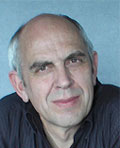 |
Herbert Gruttemeier
President, ICSTI
|
Biography
Herbert Gruttemeier is Project Manager and Head of International Relations at the Institute for Scientific and Technical Information (INIST), a unit of the French National Center for Scientific Research (CNRS). After having received a doctorate degree in mathematics from University of Marseille, he worked several years in German and French universities and high schools, before joining INIST in 1990. Prior to his present work, Herbert was successively involved in INIST’s two main traditional activities, database production and document delivery, as well as in library management. In his current position he has, in particular, participated in the INIST actions that aim at promoting tools and methods for e-Science, Open Access initiatives and innovative scholarly communication practices for scientific information and data. His work has also focused on the management of co-operative projects for developing information services in Third World countries. Herbert is an active member in several international associations and committees and currently serves as president for the 2007-2010 term of the International Council for Scientific and Technical Information (ICSTI).
[Haut de la page]
Science in 5 Dimensions: Digital Data for Cyberscholarship
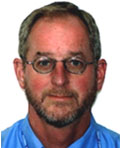 |
Chris Greer
Federal Networking and Information Technology Research and Development Program, Arlington, Virginia
|
A characteristic feature of 21st century science is that both the immediate products of research and the starting points for new inquiry are becoming almost exclusively digital. Digital instrumentation, increasingly complex models and simulation, wired and wireless sensor arrays, electronic record keeping and publishing and other factors are producing dramatic increases in both the volume and complexity of scientific data. This digital data flood can be a powerful resource for progress if, and only if, the deluge can be managed; i.e., the data can be found, understood, and used for research and education. This talk will focus on the respective roles of government, academia, and industry in providing for effective digital preservation and access to scientific data.
Biography
Christopher L. Greer is the Director, National Coordination Office, Federal Networking and Information Technology Research and Development Program, and Co-Chair of the Interagency Working Group on Digital Data of the (NSTC) Committee on Science. He served as Program Director for the Office of Cyberinfrastructure, National Science Foundation where he was responsible for strategic planning for digital data activities. He has also served as Program Director in the Directorate for Biological Sciences, Cyberinfrastructure Advisor in the Office of the Assistant Director for Biological Sciences, and Executive Secretary for the Long-lived Digital Data Collections Activities of the National Science Board.
[Haut de la page]
<odesi>, eScience in Action
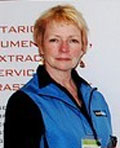 |
Paula Hurtubise
Carleton University, Ottawa
|
Research success (i.e. discovery and innovation) and enhanced learning (i.e. interdisciplinary understanding and quantitative analysis) rely on access to a diverse collection of high quality numeric-data resources. Today, fiscal realities encourage the exchange of data and technology, the leverage and re-purposing of existing resources, and the development of partnerships in order to broaden intellectual offerings. Creating a community of users and facilitating resource sharing through technological design facilitates access and understanding, satisfying the increasing expectations of an ever-more sophisticated community of academic users. This presentation will look at a project called Ontario Data Documentation, Extraction Service and Infrastructure Initiative
(http://odesi.ca) the product of an innovative partnership between university libraries, business, and government. It is a tool designed to enhance and stimulate social scientific inquiry by enabling researchers to share data and documentation, leading to new and unanticipated discoveries. Through distributed access, it also addresses the significant disparity in the availability of data resources across Ontario's academic institutions.
is part of a collaborative effort to produce better data, support accountability, and improve research quality by changing the way statistical research data are managed and disseminated.
Biography
Paula Hurtubise is a Section Chief at Statistics Canada, and the manager of the Ontario Council of University Libraries' (OCUL) Project. She works with key academic, government and private organizations to encourage the exchange of data and technology, as well as to foster partnerships between these organizations. Paula managed the Geography Dissemination Task of the 2006 Census, overseeing a multi-disciplinary team responsible for the creation, production and dissemination of the 2006 Census geography product line.
[Haut de la page]
The Enduring Legacy of the International Polar Year: Sharing The Data
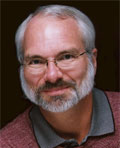 |
Ellsworth LeDrew
University of Waterloo, Waterloo, Ontario
|
Most of the data from the First International Polar Year in 1882 has been lost. Almost nothing remains of the Second International Polar Year of 1923-33, which was possibly lost during the war. In planning for the 2008-08 International Polar Year, ICSU noted that "Building an integrated data set from the broad range of IPY research activities represents one of IPY's most daunting challenges. An enduring data set, accessible to scientists and the public during IPY and for the many decades into the future, will represent one of IPY's strongest legacies".
Canada has taken the initiative to require an effective data management plan as a condition of renewal of federal funding of IPY projects and has backed this up with financial support for IPY data management. In this talk we present the issues and opportunities associated with developing a discovery portal for metadata for the Canadian IPY Scientists. We also discuss principles for management of the archives for observed and derived data as well as potential issues with 'sharing the data'.
Biography
Ellsworth F. LeDrew is a University Professor in the Department of Geography and Environmental Management, and University Research Chair. His research combines remote sensing and climate analysis. The purpose is to understand the implications of climate change and variability for our future. The remote sensing provides spatial maps of the surface (and, for coral reefs, the subsurface) of the planet that can be compared over a long time span of up to thirty years. The climatology provides the diagnostic tools that can be used to understand the temporal and spatial change in the features of the maps and help us plan for the future. The analysis of long data series has evolved into interest in preserving data and making data accessible. He has led the development of the Polar Data Catalogue for Canadian Scientists in ArcticNet, National Contaminants Program, and the International Polar Year.
[Haut de la page]
Libraries and "Team Science": Collaborative Work in a Multi-scale, Multi-disciplinary and Multi-skilled Research Environment
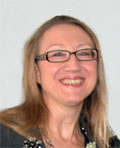 |
Liz Lyon
University of Bath, UK
|
This presentation will examine the roles that libraries and information professionals can play in the changing landscape of multi-scale, multi-disciplinary and multi-skilled team science. The talk will consider emerging trends in open science and collaborative research practice, and will particularly focus on the growing requirement for coordinated data curation, digital preservation and data management within the scholarly knowledge cycle. Exemplars from structure-based science, the work of the UK Digital Curation Centre and the wider UK community will be used to illustrate a range of practitioner-based models and approaches to support enhanced library engagement and participation. The issues associated with strategically positioning and transforming libraries to fully engage with multi-scale team science will be explored, together with the potential challenges in transitioning librarians to be the informaticians and data scientists of the future.
Biography
Dr. Liz Lyon is Director of UKOLN, a UK-based research organization that aims to inform practice and influence policy in the areas of digital libraries, information systems, bibliographic management, and Web technologies. Dr. Lyon leads this work to promote synergies between digital libraries and open science environments. She currently serves as a member of the NSF Advisory Committee for Cyber Infrastructure. Dr. Lyon has worked in various university libraries in the UK; her background is in Biological Sciences and she has a doctorate in cellular biochemistry.
[Haut de la page]
New Roles for Librarians: the Application of Library Science to Scientific/Technical Research - Purdue University, a Case Study
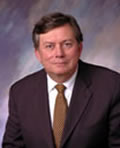 |
James L. (Jim) Mullins
Purdue University, Indiana
|
The presentation will focus first on exploration of the challenges for data management among the scientific and engineering communities; and second, on the offer to collaborate and growth of collaboration between the libraries and scientific and engineering researchers at Purdue.
Discussion points will include: initial skepticism of the researchers for the role of librarians; the conversion; and the results, one being the creation by the libraries of the Distributed Data Curation Center (D2C2) - a research center that fosters and supports the collaboration between librarians and researchers. The research collaboration on grant funded projects between the libraries and academic departmental faculty (mostly in scientific and engineering areas) went from nearly zero in 2005, to 44 in 2007, and 57 in 2008.
Biography
James L. (Jim) Mullins came to Purdue University as Dean of Libraries in 2004 from MIT Libraries where he was Associate Director for Administration. Prior to MIT he held administrative positions at Villanova University and Indiana University. His educational background includes BA and MALS degrees from the University of Iowa and a PhD from Indiana University. He serves as a member of the Association of Research Libraries (ARL) E-Science Working Group and on the ARL Board of Directors. At Purdue he is an advocate for the integration of the Libraries' faculty into collaborative research projects with colleagues on campus.
[Haut de la page]
Big Collaborations doing Big Science expect Big Repository Services
 |
Tim Smith
CERN, Switzerland
|
The LHC at CERN will produce tens of petabytes of data per year. The thousand person scientific collaborations that run the experiments are ready to distribute, store and analyze data around the world on the GRID. Their expectations for being able to do "connected science" extend past the data analysis into the preparation, publication and storage of results. This makes challenging demands on the repository infrastructure in many different directions including Web 2.0 style interactivity and collaborative services, multi-lingual interfaces, configurable output formats, inclusive search and flexible sort techniques, and visualization tools worthy of the web generation. This talk will cover how CERN's Open Source Invenio digital library software delivers these services to the High Energy Physics community. It will also cover developments to combine the venerable SPIRES database with the Invenio technology in order to roll-out INSPIRE as the subject repository for the entire discipline of High Energy Physics. Metadata from libraries, publishers and scientists will meet in this infrastructure and, together with the full text, will be used as the foundation on which to supply advanced services for the community.
Biography
Tim Smith holds a PhD in Physics and performed research at the CERN LEP accelerator for 10 years before moving to IT. He leads a group in the CERN IT Department that provides services for the 10,000 strong CERN user community covering the domains of Audio Visual, Conferencing, Document Management, PrintShop and Copy Editing as well as the IT HelpDesk. This includes a team which develops, installs and maintains instances of Invenio, the CERN Open Source Digital Library system. He is heavily involved in initiatives to drive digital archives at the institutional and subject level and to populate them with content of a broad range of media types, exemplified in the MultiMedia Archive which contains 25TB of open access photos and videos. He is one of the driving forces behind INSPIRE, the next-generation HEP subject repository. His group also includes a team which develops, installs and maintains instances of Indico, the CERN Open Source conference and meeting management system. Other services include webcast and video conferencing.
[Haut de la page]
Beyond Open Access: Maximizing the Use of Scientific Knowledge
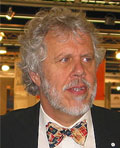 |
Jan Velterop
Concept Web Alliance, U.K
|
When Homo sapiens was still in the early stages of his evolutionary development, he hadn't yet figured out many other uses for water than to drink it. Water is one of the most abundant resources on earth, but if you're just using it to drink, you don't use much of its potential. When people invented rafts and boats a whole new world, literally, opened up to them. They all of a sudden didn't have to see expanses of water as impediments to getting to the other side, and once navigation was thus discovered, waterways and seas became the most important transportation routes upon which empires were built. There is something similar going on with the way we use information. Homo sapiens of today has not quite figured out what to do with the oceans of information available to him, other than 'by the drink' - by reading articles. There remains an enormous amount of "unknown knowns" if we do not find a way to do more with information than read articles and books, or consult databases. We have to develop ways of extracting knowledge out of large amounts of information. We have to invent the equivalents of rafts and boats to navigate information. And still read, but manageable amounts (after all, we still drink, too). Some people deplore the fact that more and more information becomes available. They even extend that to Open Access. If indeed the only thing one can imagine doing with it is read ('drink'), then solutions are being sought in selection, in limiting access, in having the choices made by others. But if one can imagine truly navigating the ever growing seas of information, the verb will not be to deplore the abundance, but instead, to explore it.
Biography
Johannes (Jan) Velterop is a science publisher. Born in The Hague, Netherlands, he was originally a marine geologist. He started his publishing career at Elsevier in Amsterdam in the mid-1970s, moving to Academic Press in London and Nature. He helped launch BioMed Central, the first commercial open access science publisher. Velterop was one of a small group of people who first defined 'open access' in 2001 in Budapest at a meeting which resulted in the Budapest Open Access Initiative. In 2005 he joined Springer Science+Business Media as Director of Open Access. Since March 20078 he is CEO of Knewco, a company that uses semantic technology to accelerate scientific discovery.
[Haut de la page]
|
|

















